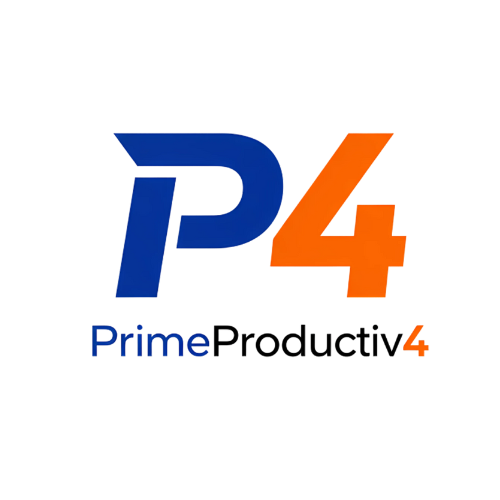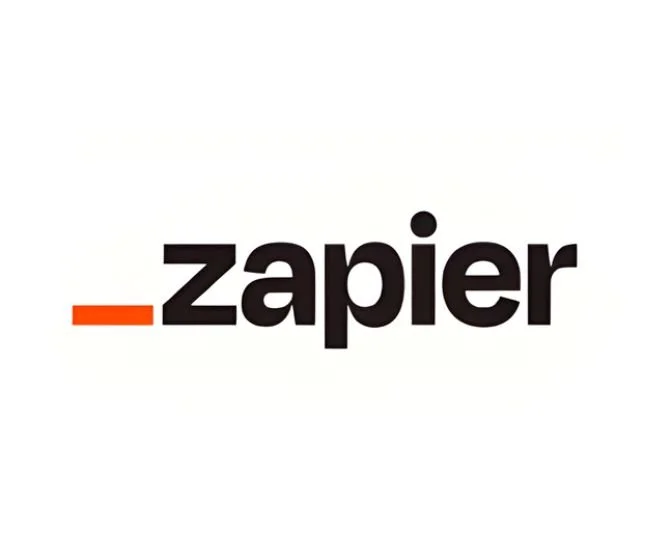Automate Workflows Seamlessly with Zapier
Zapier's intuitive workflow automation builder displays multi-step Zaps connecting Gmail, Slack, Asana, and other apps without coding. This no-code platform automates repetitive tasks, syncs data across tools, and orchestrates complex business processes—helping teams eliminate manual work and scale productivity in 2026.
Zapier is a no-code workflow automation platform that connects 6,000+ apps and services, allowing you to automate repetitive tasks, data transfers, and multi-step workflows without coding. Ideal for remote teams, entrepreneurs, small businesses, marketers, and operations professionals seeking to scale productivity and eliminate manual work.
Quick Overview
Type: Web App / Browser Extension / Cloud-Based Platform
Pricing: Free plan available, Professional $19.99/month ($240 billed annually), Team $69/month ($828 billed annually), Enterprise custom pricing
Best For: Small teams, entrepreneurs, remote workers, marketers, operations managers, and businesses automating workflows
Website: https://zapier.com
What is Zapier?
Zapier is a no-code automation platform that lets your apps talk to each other without writing a single line of code. You simply create "Zaps"—automated workflows triggered by events in one app that prompt actions in another. For example, when a new email arrives in Gmail, Zapier can automatically create a task in Trello, send a notification to Slack, and save the data to your CRM—all instantly and hands-free.
With over 2 million users and 100,000+ teams worldwide, Zapier powers automation across marketing, sales, operations, support, and HR. The platform handles data transfer, condition logic, multi-step workflows, and even AI-powered automation. Built-in tools like Filters, Paths, Delays, and Formatters give you granular control without needing additional apps. Advanced features like Zapier Tables (no-code databases), Zapier Interfaces (custom dashboards), and Zapier Chatbots add even more capability. Whether you're automating lead capture, team notifications, data sync, or complex business processes, Zapier scales from solo freelancers to enterprise organizations.
Key Features
6,000+ App Integrations – Connect your favorite tools (Gmail, Slack, Asana, HubSpot, Stripe, Shopify, and more)
Multi-Step Zaps – Chain multiple actions across apps in one automated workflow
AI Prompt Steps – Add AI-powered logic to summarize, rephrase, or enrich automation output
Conditional Logic & Paths – Branch workflows based on conditions (If X, do this; If Y, do that)
Zapier Tables – Build simple databases and manage data without code
Zapier Interfaces – Create custom dashboards and forms for team collaboration
Zapier Chatbots – Deploy conversational bots to automate customer interactions
Built-In Tools – Filter, Format, Delay, and Transform data within Zaps
Webhooks & API Support – Connect custom apps or build advanced integrations
Shared Workspaces & Permissions – Collaborate with teams and control access
Versioning & Testing – Clone, test, and deploy Zaps with full governance controls
Audit Logs & Compliance – HIPAA, GDPR, and SOC 2 support for enterprise security
👍 Pros
Massive app library (6,000+) covers most business tools and workflows
Free plan allows unlimited two-step Zaps and 100 tasks/month—great for testing
Intuitive, wizard-based interface requires zero coding knowledge
Multi-step Zaps, branching logic, and AI features offer powerful workflow flexibility
Reliable trigger-based automation with instant execution on supported apps
Strong team collaboration features with shared workspaces and role-based access
Regular updates, new integrations, and continuous platform improvements
Excellent support via email, live chat, and comprehensive documentation
Scalable from freelancers to enterprise organizations with custom plans
👎 Cons
Task-based pricing can become expensive at scale with high-volume automations
Advanced branching and iterators (looping through lists) can feel limited compared to competitors
Polling-based triggers may add delays for time-sensitive workflows
Learning curve for complex multi-step Zaps with conditional logic
Free plan limited to single-step Zaps and 100 tasks/month—too restrictive for ongoing use
Premium app access limited to paid plans
No native database—Tables feature is an add-on, not included in all plans
Pricing
Free Plan - $0/month:
Unlimited two-step Zaps, 100 tasks/month, basic integrations, AI power-ups
Professional Plan - $19.99/month ($240 billed annually) or $29.99/month (monthly):
Multi-step Zaps, 750+ tasks/month, premium app access, webhooks, filters, AI steps, email & live chat support
Team Plan - $69/month ($828 billed annually) or $103.50/month (monthly):
2,000+ tasks/month, shared workspaces, 25 users, folder permissions, SAML SSO, advanced collaboration, premier support
Enterprise Plan - Custom Pricing:
Unlimited users, 100,000+ tasks/month, custom task bundles, HIPAA/GDPR compliance, audit logs, admin controls, technical account manager, dedicated support, SLA
Add-Ons (available across plans):
Zapier Tables (database storage), Zapier Interfaces (custom forms & dashboards), Zapier Chatbots (conversational automation)
Integrations
Zapier connects with 6,000+ apps including Gmail, Slack, Microsoft Teams, Asana, Monday.com, Trello, HubSpot, Salesforce, Shopify, Stripe, Google Sheets, Airtable, Notion, Pipedrive, Zendesk, Mailchimp, and countless others. New integrations are added regularly.
Learning Curve
Beginner Friendly: ⭐⭐⭐⭐☆ (4/5)
Getting started is easy—select a trigger app, define an event, choose an action app, and Zapier handles the rest. Simple two-step Zaps require minimal setup. More complex multi-step workflows with conditional logic and branching take practice, but Zapier's documentation and templates help. Power users can master advanced features like paths, loops, and webhooks, though these require more exploration.
Best Use Cases
Automating lead capture and CRM data entry
Sending notifications across team communication tools (Slack, Teams, email)
Syncing data between apps (spreadsheets, databases, project management)
Creating backup automations and scheduled tasks
Bulk data migration and historical record syncing
Customer onboarding and follow-up workflows
E-commerce order and inventory automation
Form submissions to multiple destinations
Team collaboration and task assignment automation
Content distribution across multiple platforms
Alternative Apps
If Zapier isn't right for you, consider:
Make (formerly Integromat) – Advanced branching, loops, and complex workflows, though steeper learning curve ($9.99/month billed $120/year or $10.59/month)
IFTTT – Simpler, more limited automation for casual users (Free or $3.99/month billed monthly or $35.88/year)
Zapier Alternative: Pabbly Connect – Budget-friendly automation tool with lower task-based pricing (Free or $59/month or $468/year)
Bottom Line
Zapier is the go-to no-code automation platform for teams and entrepreneurs seeking to scale productivity without coding. With 6,000+ integrations, flexible multi-step workflows, AI-powered logic, and transparent pricing, Zapier delivers exceptional value for automating repetitive tasks. Small businesses, marketers, and operations teams will appreciate its intuitive interface and collaborative features. Power users needing advanced looping or complex branching may explore Make (formerly Integromat), while budget-conscious users should monitor task usage carefully. Zapier's free plan is perfect for testing; paid plans scale from freelancers to enterprises.
Frequently Asked Questions
Is Zapier free?
Yes! Zapier offers a forever-free plan with 100 tasks/month and unlimited two-step Zaps. For multi-step automation and higher task limits, paid plans start at $19.99/month ($240 annual billing).
How many apps can Zapier connect to?
Zapier integrates with 6,000+ apps including Gmail, Slack, Asana, HubSpot, Shopify, Stripe, and thousands more. New integrations are added regularly, and you can create custom integrations via webhooks.
Does Zapier require coding?
No, Zapier is a no-code platform designed for non-technical users. You simply select triggers, actions, and conditions using an intuitive, wizard-based interface. Power users can add webhooks for custom integrations, but coding is never required.
How much do Zapier tasks cost?
Zapier uses task-based pricing where each automated action counts as one task. Free plans include 100 tasks/month; Professional plans start at $19.99/month (billed $240/year) for 750+ tasks. Task usage varies by automation complexity, so monitoring usage prevents surprise costs.
Can multiple team members use Zapier together?
Yes, the Team plan ($69/month billed $828/year) includes shared workspaces for up to 25 users, shared app connections, role-based folder permissions, and SAML SSO. Enterprise plans support unlimited users with advanced admin controls.
What is the difference between Zapier and Make (Integromat)?
Zapier excels in simplicity and app coverage (6,000+), while Make offers more advanced looping and branching for complex workflows. Make has a steeper learning curve but handles intricate logic better. Choose Zapier for ease; choose Make for advanced scenarios.
Does Zapier support HIPAA and GDPR compliance?
Yes! Zapier's Enterprise plan includes HIPAA and GDPR compliance, audit logs, SSO, and advanced security controls. This makes it suitable for healthcare, financial services, and regulated industries.
Get Started
Last Updated: October 2025
Category: Automation

